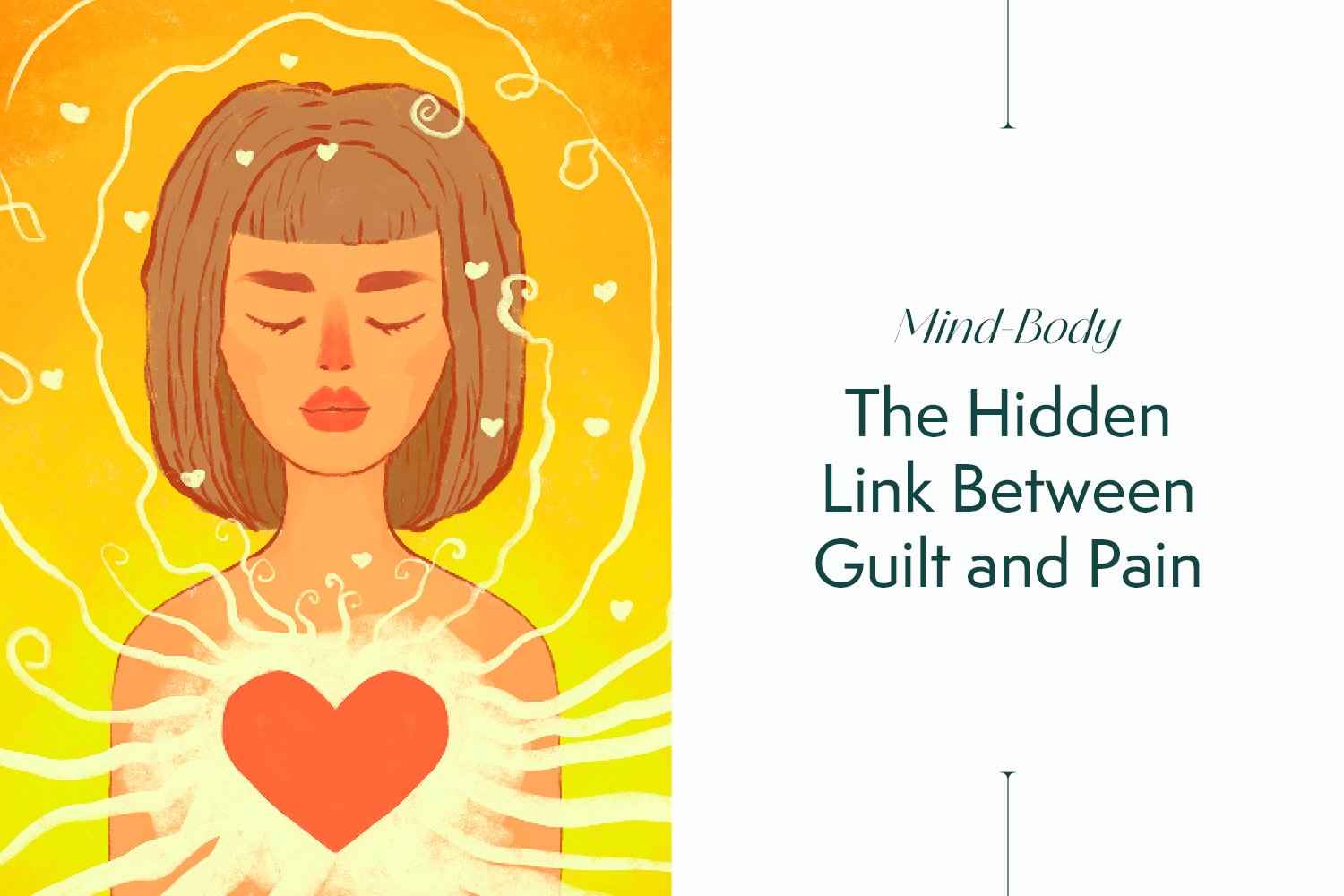Guilt doesn’t just affect your emotions. It can also influence how you feel physically. Recognising how your mind and body interact can often help ease discomfort and support overall well-being.
Physical Signs of Emotional Strain
Guilt often shows up in the body, triggering physical symptoms such as:
- Muscle tension: Commonly felt in the shoulders, neck, or back.
- Digestive changes: Including stomach discomfort, nausea, or reduced appetite.
- Headaches: Particularly tension headaches linked to emotional stress.
- Fatigue: The ongoing emotional load can leave the body feeling drained.
Noticing these signals can help draw attention to emotions that need attention and care.
How Releasing Emotional Strain May Support Recovery
Holding on to guilt can feel like you’re carrying a heavy weight around. Letting go of it, little by little, may relieve tension and improve how you feel.
For instance, many people report:
- Less muscle tightness.
- Better sleep.
- A greater sense of ease and energy.
Everyone’s experience is different, but addressing emotional stress can play a meaningful role in recovery.
Recognising Hidden Emotional Patterns
Sometimes guilt isn’t obvious. Sometimes it may show up in patterns such as:
- Perfectionism: Pushing yourself to meet unrealistic standards.
- Avoidance: Steering clear of certain people or situations.
- People-pleasing: Saying yes to others at the expense of your own needs.
- Self-doubt: Questioning your worth or feeling undeserving of good things.
Reflecting on these habits can offer insight into how emotions might be affecting your well-being.
Steps to Reduce the Impact of Guilt
Letting go of guilt doesn’t happen overnight. Rather, it’s a gradual process of awareness and self-reflection. Helpful steps to achieving this may include:
- Acknowledge the feeling: Notice guilt when it comes up, without judgement.
- Understand the cause: Think about where it might have started.
- Take small, constructive actions: If there’s a way to improve the situation, even in a small way, it may help.
- Allow yourself to move forward: Mistakes are part of life, and they don’t define your worth. Remind yourself of this.
These aren’t instant fixes, but small shifts that can often help release some of the emotional and physical tension linked to past experiences.
Reconnecting with Your Body
Persistent guilt can sometimes make you feel disconnected from your body. Restoring that connection may help you feel more settled and at ease.
You might find it helpful to:
- Show yourself kindness: Treat your body with patience, especially on more difficult days.
- Practice gratitude: Reflect on what your body enables you to do, no matter how small.
- Prioritise regular care: Consistent sleep, movement, and nourishment help support emotional balance.
- Accept imperfections: Nobody gets everything right all the time; allow space for being human.
By recognising emotional patterns and giving yourself small moments of care, you may begin to feel more at ease in both body and mind.
